Conventional
The LTV (Loan Term Value) is 80% but can be higher with PMI (Private Mortgage Insurance). PMI is required on conventional loans where LTV is higher than 80%. The LTV is always based off the lower of the appraised value or purchase price; the lower of the two is what the bank uses to figure the LTV. This can sometimes cause issues when the bank appraisal comes back less than the contract price. At this point the buyer/borrower would have to come up with additional money to cover the difference between the bank appraisal and the contract price or be forced to pay PMI.
FHA
FHA loans require much less of a down payment than conventional loans, typically a 3.5% down payment is required.
Must be owner occupied residential from 1-4 units. Local banks and lenders in the primary market originate these loans and the Federal Housing Authority sets minimum standards for home condition. Since these loans require much less of a down payment, homes in need of corrective maintenance may not qualify under the minimum standards. The inspection report standards are set much higher for these loans because it places a greater risk on the bank due to the lower required down payment. Another drawback is the requirement for Mortgage Insurance Premiums (MIP) due to the high LTV. This insurance is paid by the borrower to protect the lender’s financial interest in the event of a default by the borrower; a funding fee is also required and can be worked into their mortgage.
VA
Veteran Loans are available to any qualified veteran and widows/widowers of a veteran. Must be an owner occupied 1-4 unit residential dwelling. These loans allow for up to 100% LTV.
The VA guarantees VA loans but banks and lenders in the local market make the loans. Similar to FHA and Conventional loans an appraisal must be completed to determine the maximum amount the VA will allow to be loaned on the property. This is called a Certificate of Reasonable Value. (CRV) If the purchase price is more than the CRV the veteran has two options: Pay the difference or cancel the transaction.
VA loans do not require MIP or PMI however, veterans are charged a one time funding fee at closing. Disabled Vets and Purple Heart Recipients are exempt from funding fees.
USDA
USDA loans require 0% down for qualified borrowers. Borrowers must be under the maximum household income limit to qualify for a USDA loan. These loans provide low to moderate-income households the ability to own a house in rural areas. These loans are only for primary residence dwellings and cannot be income producing. Mortgage insurance premiums are required on USDA loans as well as a funding fee, based off the loan amount.
Land Loans
Most land loans will require a 25 percent down payment; depending on the credit risk this could be even higher. Typically most financial institutions will only allow a maximum loan term of 20 years for land loans.
Many banks will not make loans for land unless the borrowers plan to build on the land sometime in the near future. However, there are several financial institutions like Carolina Farm Credit that will make land loans even if there is no future plans to build on the site.
If a borrower cannot come up with the down payment other assets owned by the borrower may be put up as collateral toward the down payment.
Most always financial institutions will require a land survey. The current owners may have already had this done at a previous time. If there is not a survey available typically the buyer is required to pay the surveying cost. Depending on the amount of acreage, surveys can be costly. It is always best to check with the current owners to see if they have a survey or check with the registrar of deeds to see if they have one on file.
In most cases if the purchase price is less than or equal to what the county tax records have, then no appraisal will be required.
Installment Land Contract
This is a great way to get financing for a tract of land without going through a financial institution. This type of financing is referred to as contract for deed. Instead of receiving financing from a financial institution, the financing comes directly from the owner/seller. The seller acts as the bank and the buyer/borrower makes payments or installments to the seller for an agreed upon amount of time. The owner/seller retains legal title to the property while the borrower/buyer retains equitable title to the property.
All aspects of the terms and conditions are negotiable between the seller and the buyer. The majority of times a down payment is still required however, it may be much less than what most financial institutions require. This type of loan allows the borrower to avoid origination fees and other fees charged by the lending institution. A borrower with sub par credit may also be able to get financing with an installment land contract.
An installment land contract really boils down to the willingness of the seller to owner finance the land and both parties reaching an agreement on the terms of the contract.
USDA Farm Loans
The United States Department of Agriculture offers several different types of loans geared toward farmers. These include farm ownership loans, and beginning farmer loans just to name a few. To view more information about USDA farm loans please visit https://www.fsa.usda.gov/programs-and-services/farm-loan-programs/index
1031 Like Kind Exchange
A 1031 exchange allows the swap of one investment property for another and allows capital gains taxes to be avoided. This exchange can only be done with similar type properties. The logistics of a1031 like kind exchange can be difficult to navigate due to timing rules that must be met. The replacement property must be identified within 45 days of the sale of the original property. The IRS allows you to designate three different properties but one of the three must close to qualify for the exchange. Once the replacement property is identified the closing must take place within 180 days from the sale of the old property. If you are considering a 1031 like kind exchange it is best to consult with a qualified accountant and lawyer.
 Trey Swicegood
Trey Swicegood

Each Office Independently Owned And Operated. The information provided herein is deemed accurate, but subject to errors, omissions, price changes, prior sale or withdrawal. United Real Estate does not guarantee or is anyway responsible for the accuracy or completeness of information, and provides said information without warranties of any kind. Please verify all facts with the affiliate.
Copyright© United Real Estate
Privacy Statement-Terms Of Use

If you are using a screen reader, or having trouble reading this website, please call our Customer Support for help at 800-999-1020 .
Web Content Accessibility Disclosure Statement:
We strive to provide websites that are accessible to all possible persons regardless of ability or technology. We strive to meet the standards of the World Wide Web Consortium's Web Content Accessibility Guidelines 2.1 Level AA (WCAG 2.1 AA), the American Disabilities Act and the Federal Fair Housing Act. Our efforts are ongoing as technology advances. If you experience any problems or difficulties in accessing this website or its content, please email us at: unitedsupport@unitedrealestate.com. Please be sure to specify the issue and a link to the website page in your email. We will make all reasonable efforts to make that page accessible for you.
The Digital Millennium Copyright Act of 1998, 17 U.S.C. § 512 (the “DMCA”) provides recourse for copyright owners who believe that material appearing on the Internet infringes their rights under U.S. copyright law. If you believe in good faith that any content or material made available in connection with our website or services infringes your copyright, you (or your agent) may send us a notice requesting that the content or material be removed, or access to it blocked. Notices must be sent in writing by email to: Legal@UnitedRealEstate.com
The DMCA requires that your notice of alleged copyright infringement include the following information: (1) description of the copyrighted work that is the subject of claimed infringement; (2) description of the alleged infringing content and information sufficient to permit us to locate the content; (3) contact information for you, including your address, telephone number and email address; (4) a statement by you that you have a good faith belief that the content in the manner complained of is not authorized by the copyright owner, or its agent, or by the operation of any law; (5) a statement by you, signed under penalty of perjury, that the information in the notification is accurate and that you have the authority to enforce the copyrights that are claimed to be infringed; and (6) a physical or electronic signature of the copyright owner or a person authorized to act on the copyright owner’s behalf. Failure to include all of the above information may result in the delay of the processing of your complaint.
Leave a message for Trey